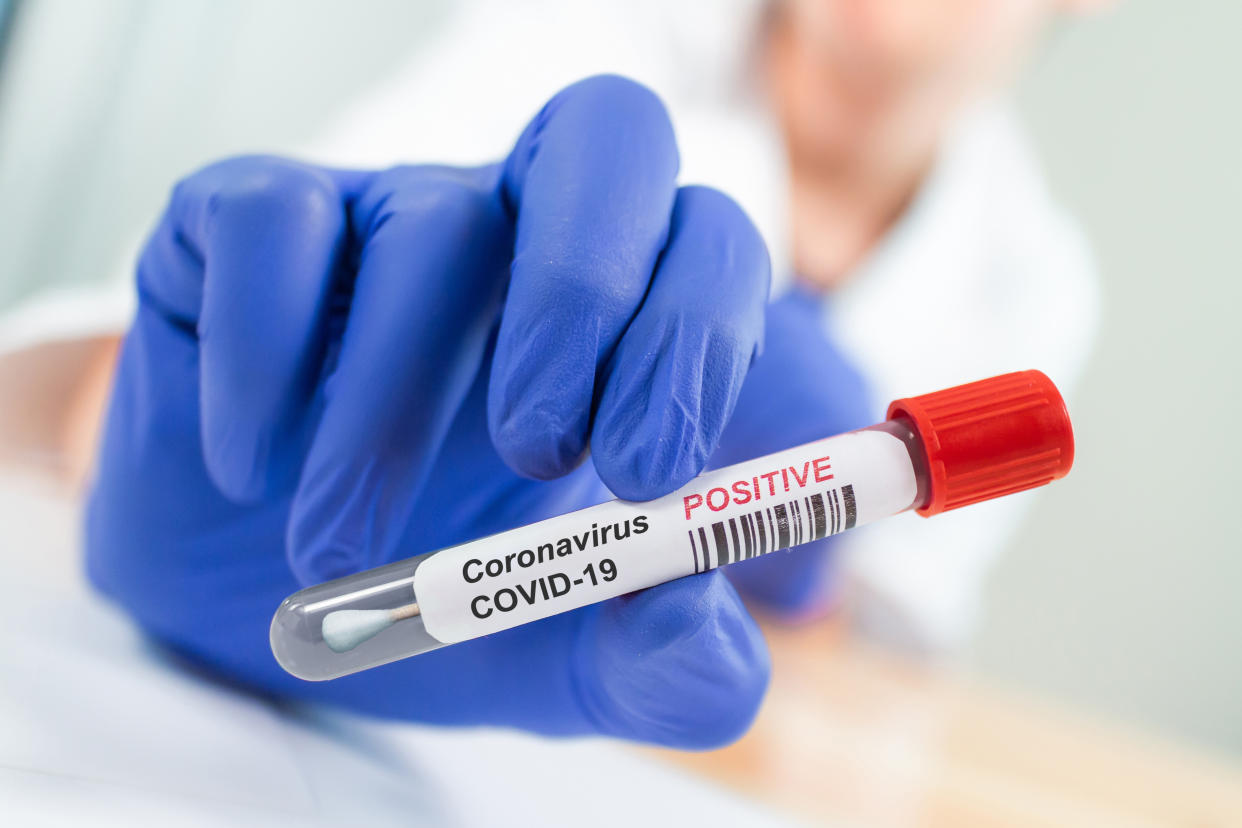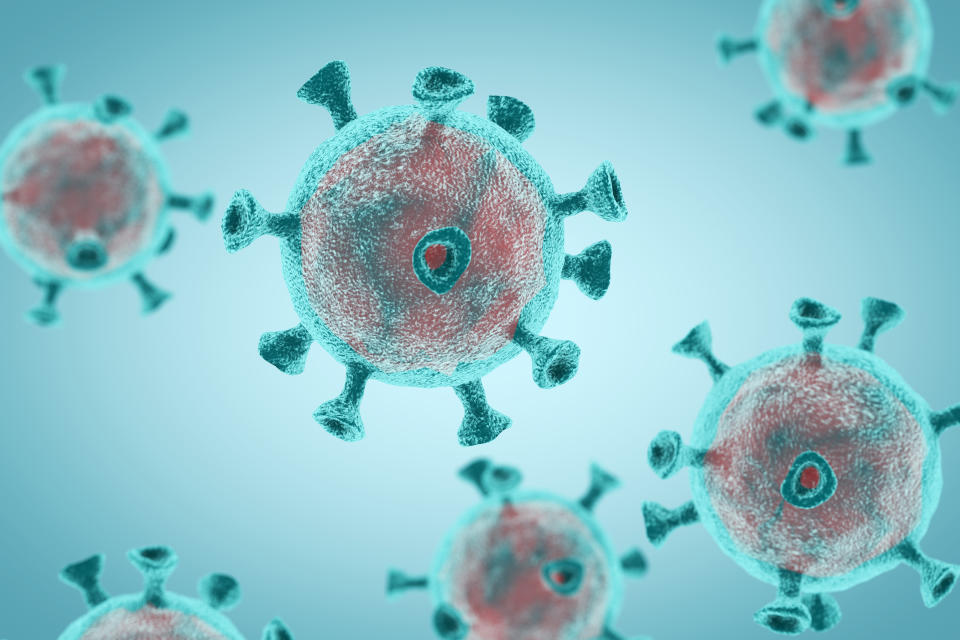Leukaemia patient, 71, infectious with coronavirus for at least 70 days

A leukaemia patient is thought to have been infectious with the coronavirus for at least 70 days.
Since the coronavirus outbreak emerged, experts have questioned how long a patient actively sheds the infection, allowing it to be passed on to others.
The NHS stresses anyone who tests positive for the coronavirus or develops its tell-tale fever, cough, or loss of taste or smell must self-isolate entirely at home for at least 10 days.
With the length of infectivity thought to vary from patient to patient, scientists from the US National Institute of Allergy and Infectious Diseases (NIAID) have reported how an unnamed 71-year-old woman with leukaemia was infected with the coronavirus for at least 105 days.
During this time, the woman – who developed no symptoms – was said to be shedding the virus for a minimum of 70 days. This is defined as the virus replicating in the body and being expelled out, for example via coughing.
Read more: Personal trainer hires carer after long COVID leaves him 'wiped out'
The scientists believe the woman’s cancer meant she could not produce immune-fighting proteins called antibodies, allowing the infection to persist.
Nevertheless, she did not became seriously ill with the infection itself.

“At the time we started this study, we really didn’t know much about the duration of virus shedding,” said study author Dr Vincent Munster.
“As this virus continues to spread, more people with a range of immunosuppressing disorders will become infected, and it’s important to understand how SARS-CoV-2 [the coronavirus] behaves in these populations.”
In April, the NIAID scientists were contacted by infectious disease specialist Dr Francis Riedo about a leukaemia patient in Kirkland, Washington State.
Read more: Coronavirus makes tinnitus worse for 40% with the hearing disorder
The woman was found to have the coronavirus after having a routine swab while being admitted to hospital with severe anaemia. She had been at a rehabilitation centre with a serious coronavirus outbreak.
Regular throat swabs revealed the coronavirus persisted in the woman’s airways for at least 70 days after her first positive test, the scientists reported in the journal Cell.
She did not fully clear the virus until after day 105.
“This was something we expected might happen, but it had never been reported before,” said Dr Munster.
Watch: Can you catch coronavirus twice?
The woman was immunocompromised as a result of her leukaemia and acquired hypogammaglobulinemia, when an insufficient amount of antibodies are released into the blood.
The scientists believe she remained infectious for so long because her compromised immune system never allowed her to mount a complete response against the coronavirus.
Blood tests revealed she did not produce antibodies while carrying the infection.
Read more: Asian ethnicity 'strongly linked' to coronavirus-related stroke
At one point she was treated with experimental plasma therapy. This may be offered if someone who has overcome the coronavirus donates samples of the liquid part of their blood in the hope doctors can harness their antibodies.
Due to the woman’s low antibody levels, the NIAID scientists do not think the therapy was effective.
While research into plasma treatment is limited, studies have so far suggested it does not speed up a coronavirus patient’s recovery.
Despite her compromised immunity, the woman never developed COVID-19, the disease that can be caused by the coronavirus.
Although unclear, other aspects of her immune system – like T cells – may have been strong enough to fight the infection. T cells directly kill coronavirus-infected cells and call on other aspects of the immune system to help out.
As far as the scientists are aware, this is the longest case of a patient being actively infected with the coronavirus while remaining asymptomatic.
“We've seen similar cases with influenza and with Middle East respiratory syndrome [Mers], which is also caused by a coronavirus,” said Dr Munster.
The circulating coronavirus is one of seven strains of a virus class that are known to infect humans. One of the strains is Mers, which killed 858 people during its 2012 outbreak.
“We expect to see more reports like ours coming out in the future,” added Dr Munster.
Watch: What is long COVID?



